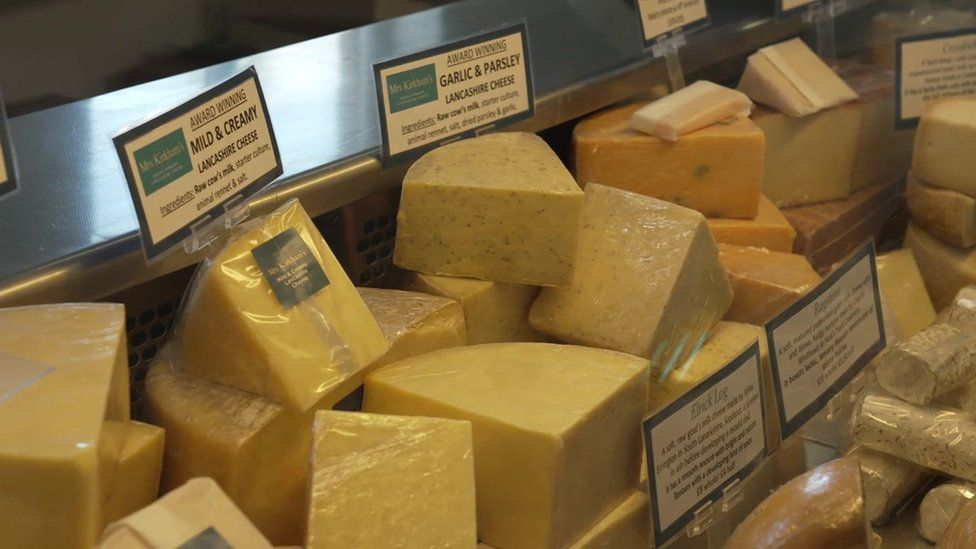1 hour ago
About sharing
A person in Scotland has died from E. coli, following an outbreak of the bacterial infection in the UK linked to cheese.
Health experts warned a few days ago that some products in the Mrs Kirkham’s range might be contaminated and should be recalled as a precaution.
It is not clear yet whether the death was caused by food.
Officials say investigations are continuing into any common links between cases and the recalled cheeses.
The UKHSA said one person from Scotland with the infection has now died but has not provided details such as their age or sex, or whether they had other underlying health conditions.
It says there have been 30 confirmed cases of Shiga toxin-producing E.coli (STEC) reported across England and Scotland since late July. These were people aged between seven and 81, and some needed hospital care.
Symptoms of STEC infection can vary in severity, ranging from mild diarrhoea to severe abdominal cramps, vomiting and bloody diarrhoea.
In up to 15% of cases, infection can lead to the development of haemolytic uraemic syndrome (HUS) – a serious and life-threatening condition predominantly affecting the kidneys, which can result in death.
The Food Standards Agency (FSA) and UKHSA warned the public not to eat the following cheeses:
Mrs Kirkham’s Mild & Creamy Lancashire
Mrs Kirkham’s Tasty Lancashire
Mrs Kirkham’s Mature Lancashire
Mrs Kirkham’s Smoked Lancashire
No 1 Waitrose and Partners, Farmhouse Kirkham’s Lancashire cheese
STEC infection can be spread by many different routes – not just contaminated food. It can be caught from direct contact with an infected animal or close contact with an infected person.
Amy Douglas, incident director for gastrointestinal infections and food safety division at UKHSA, said people should take any necessary precautions.
“If you have diarrhoea and vomiting, you can take steps to avoid passing it on to family and friends over the festive period.
“Washing your hands with soap and warm water and using bleach-based products to clean surfaces will help stop infections from spreading. Don’t prepare food for others if you have symptoms or for 48 hours after symptoms stop.
“Many of us will be travelling for Christmas, but if you are unwell you should avoid visiting people in hospitals and care homes to avoid passing on the infection in these settings,” she added.
“Do not return to work or school once term restarts until 48 hours after your symptoms have stopped.”
Related Topics
21 hours ago
